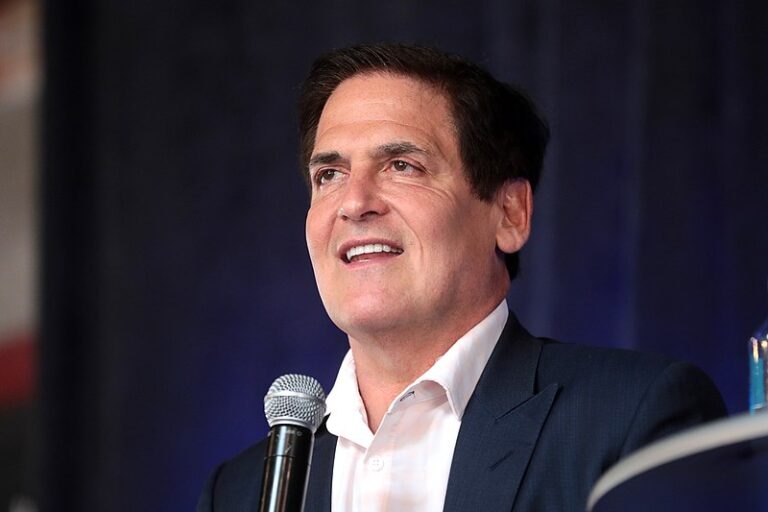Don’t Stop When You’re Tired: Perseverance in Leadership
Power of Perseverance in Leadership
The quote “Don’t stop when you’re tired. Stop when you’re done.” is a powerful reminder of the importance of perseverance in leadership. As a leader, it’s easy to get bogged down by the challenges and obstacles that come your way. You may feel exhausted, frustrated, or overwhelmed, and the temptation to give up can be strong. However, the most successful leaders understand that the path to achievement is rarely easy, and they push through the fatigue to keep going until they’ve accomplished their goals.
One of the problems with stopping when you’re tired is that it can hinder progress. When you give up too soon, you may miss out on opportunities for growth and improvement. You may also set a negative example for your team, who may see you as someone who gives up easily. In contrast, when you push through the fatigue and keep going, you demonstrate your commitment to your goals and inspire others to do the same.
There are many examples of leaders who have pushed through fatigue to achieve success. For example, Abraham Lincoln is known for his perseverance in the face of adversity. Despite facing numerous setbacks and failures throughout his life, he never gave up on his dream of becoming president. Similarly, Winston Churchill is known for his determination and resilience during World War II, even when many people doubted his ability to lead.
Of course, it’s important to remember that pushing through fatigue is not always the answer. There may be times when it’s necessary to take a break, regroup, and recharge your batteries. However, the key is to know when you’re done, rather than simply stopping because you’re tired. This requires a deep understanding of your goals and priorities, as well as an ability to recognize when a task is complete.
In the next section, we’ll explore the importance of knowing when you’re done and how to avoid the danger of perfectionism. We’ll also discuss strategies for pushing through fatigue when necessary, including the importance of self-care, prioritization, collaboration, and delegation.
Problem with Stopping When You’re Tired
Stopping when you’re tired can be a major obstacle to achieving success as a leader. It can be tempting to give up when things get tough, especially if you’ve been working on a project for a long time. However, the problem with stopping when you’re tired is that it can hinder progress and prevent you from reaching your full potential.
When you stop because you’re tired, you may miss out on opportunities for growth and improvement. For example, if you’re working on a challenging project and you stop when you’re tired, you may not have the energy or motivation to explore new ideas or approaches. Instead, you may settle for a less-than-perfect solution that doesn’t fully meet your goals or the needs of your team or organization.
In addition, stopping when you’re tired can set a negative example for your team. As a leader, you are a role model for your employees, and they look to you for guidance and inspiration. If you give up easily or don’t push yourself to achieve your goals, your team may become demotivated and lose faith in your leadership.
On the other hand, when you push through the fatigue and keep going, you demonstrate your commitment to your goals and your team. You show that you are willing to do whatever it takes to achieve success, and you inspire others to do the same. This can have a powerful effect on your team’s motivation, morale, and productivity.
Of course, pushing through fatigue is not always easy. It requires discipline, focus, and determination. It also requires a deep understanding of your goals and priorities, as well as an ability to manage your time and resources effectively. In the next section, we’ll explore the importance of knowing when you’re done and how to avoid the danger of perfectionism, which can also hinder progress and prevent you from achieving your goals.
Importance of Knowing When You’re Done
Knowing when you’re done is a critical skill for any leader. It requires a deep understanding of your goals, your team’s needs, and the resources available to you. It also requires an ability to recognize when a task is complete and when it’s time to move on to the next one.
One of the dangers of stopping when you’re tired is that it can lead to perfectionism. When you’re tired and feeling overwhelmed, it’s easy to get caught up in the details and lose sight of the big picture. You may become so focused on achieving a perfect outcome that you lose sight of the fact that it’s not always possible or necessary.
Perfectionism can be a major obstacle to progress and can prevent you from achieving your goals. It can lead to procrastination, indecision, and self-doubt. It can also lead to burnout, as you become so focused on achieving perfection that you neglect your own needs and the needs of your team.
To avoid the danger of perfectionism, it’s important to set realistic expectations and goals. You should aim for excellence, but recognize that perfection is rarely achievable. You should also be willing to take risks and try new things, even if they don’t always work out.
Another key aspect of knowing when you’re done is recognizing when a task is complete. This requires a clear understanding of what you’re trying to achieve and what success looks like. It also requires an ability to evaluate your progress and determine when you’ve achieved your goals.
To evaluate your progress, you can use metrics and other tools to measure your success. This can include tracking your team’s productivity, customer satisfaction, or other key performance indicators. You can also use feedback from your team and other stakeholders to gauge your progress and identify areas for improvement.
Ultimately, knowing when you’re done requires a balance between perseverance and realism. You should push through fatigue and keep going until you’ve achieved your goals, but you should also recognize when it’s time to take a break or move on to the next task. This requires discipline, focus, and a deep commitment to your goals and your team’s success.
Strategies for Pushing Through Fatigue
Pushing through fatigue can be challenging, but it’s an important skill for any leader. It requires discipline, focus, and an ability to manage your time and resources effectively. Here are some strategies you can use to push through fatigue and keep going until you’re done:
-
Self-Care: Taking care of yourself is essential for maintaining your energy and motivation. This includes getting enough sleep, eating a healthy diet, and exercising regularly. It also means taking breaks when you need them, whether it’s a quick walk outside or a few minutes of meditation.
-
Prioritization: When you’re feeling tired and overwhelmed, it’s important to prioritize your tasks and focus on the most important ones first. This will help you make progress and feel more accomplished, even if you’re not able to complete everything on your to-do list.
-
Collaboration: Working with others can help you push through fatigue and achieve your goals. This may mean delegating tasks to your team members, seeking input and feedback from colleagues, or partnering with other leaders to achieve a shared goal.
-
Delegation: Delegating tasks to others can help you conserve your energy and focus on the most important tasks. It can also help your team members develop new skills and grow in their roles.
-
Mindfulness: Practicing mindfulness can help you stay focused and present, even when you’re feeling tired and overwhelmed. This may include meditation, deep breathing exercises, or simply taking a few moments to center yourself before starting a task.
-
Celebrate Small Wins: Celebrating small wins can help you stay motivated and build momentum. This may mean acknowledging your team’s progress, taking time to reflect on your own accomplishments, or simply taking a moment to appreciate the progress you’ve made.
-
Break Up Tasks: Breaking up larger tasks into smaller, more manageable ones can help you stay focused and avoid feeling overwhelmed. This can also help you make progress and feel more accomplished, even if you’re not able to complete the entire task in one sitting.
Ultimately, pushing through fatigue requires a balance between self-care and discipline. By taking care of yourself and prioritizing your tasks, you can conserve your energy and focus on the most important tasks. By collaborating with others and celebrating small wins, you can build momentum and stay motivated, even when the going gets tough.
Danger of Quitting Too Soon
Quitting too soon can be a major obstacle to achieving success as a leader. When you give up too quickly, you may miss out on opportunities for growth and improvement. You may also set a negative example for your team, who may see you as someone who gives up easily. In contrast, when you persist and keep going, you demonstrate your commitment to your goals and inspire others to do the same.
One of the costs of giving up too soon is the loss of time and resources. When you abandon a project or goal prematurely, you may have to start over from scratch or lose progress you’ve already made. This can be a major setback and can prevent you from achieving your goals on time or within budget.
In addition, quitting too soon can lead to missed opportunities for learning and growth. When you push through challenges and overcome obstacles, you develop new skills and gain valuable experience. This can help you become a better leader and prepare you for future challenges.
Another cost of giving up too soon is the impact on your team. When you give up easily, your team may become demotivated and lose faith in your leadership. They may feel that their efforts are not valued or that they are not making progress towards their goals. This can lead to lower productivity, higher turnover, and other negative outcomes.
To avoid the danger of quitting too soon, it’s important to stay focused on your goals and maintain a long-term perspective. You should be willing to take risks and try new things, even if they don’t always work out. You should also be willing to seek feedback and learn from your mistakes, rather than giving up at the first sign of difficulty.
Another key aspect of avoiding the danger of quitting too soon is staying connected to your why. Your why is the deeper purpose or motivation behind your goals. It’s the reason you’re doing what you’re doing, and it can help you stay focused and motivated even when the going gets tough. By staying connected to your why, you can maintain a sense of purpose and meaning, even when you’re feeling tired or discouraged.
Ultimately, the key to avoiding the danger of quitting too soon is perseverance. It requires discipline, focus, and a deep commitment to your goals and your team’s success. By pushing through challenges and staying connected to your why, you can overcome obstacles and achieve your goals, even when the journey is difficult.
Leaders Who Did Not Quit
There are many examples of leaders who have persevered in the face of adversity and achieved great success. These leaders serve as role models for anyone who is facing challenges and obstacles on their path to success. Here are some case studies of leaders who did not quit:
-
J.K. Rowling: J.K. Rowling is the author of the Harry Potter series, one of the most successful book series of all time. However, before she became a successful author, she faced numerous setbacks and rejections. Her manuscript was rejected by multiple publishers before she finally found a publisher who was willing to take a chance on her. Today, she is one of the most successful authors in the world, with a net worth of over $1 billion.
-
Oprah Winfrey: Oprah Winfrey is one of the most successful media personalities in the world. However, she faced numerous challenges and setbacks on her path to success. She was born into poverty and faced abuse and trauma throughout her childhood. Despite these challenges, she persevered and went on to become a successful talk show host, actress, and philanthropist.
-
Nelson Mandela: Nelson Mandela was a South African anti-apartheid revolutionary and politician who served as President of South Africa from 1994 to 1999. He spent 27 years in prison for his activism, but he never gave up on his dream of a free and democratic South Africa. After his release from prison, he worked tirelessly to promote reconciliation and social justice in his country.
-
Steve Jobs: Steve Jobs was the co-founder of Apple Inc. and is widely regarded as one of the most innovative and influential entrepreneurs in history. However, he faced numerous setbacks and challenges on his path to success. He was fired from Apple in 1985, but he never gave up on his vision for the company. He returned to Apple in 1997 and went on to lead the company to unprecedented success.
-
Malala Yousafzai: Malala Yousafzai is a Pakistani activist for female education and the youngest Nobel Prize laureate. She became an advocate for girls’ education at a young age, despite facing threats and violence from the Taliban. In 2012, she was shot in the head by a Taliban gunman, but she survived and continued her advocacy work.
These leaders demonstrate the power of perseverance and the importance of not giving up in the face of adversity. They serve as role models for anyone who is facing challenges and obstacles on their path to success. By staying focused on their goals and staying connected to their why, they were able to overcome obstacles and achieve great success.
Keep Going Until You’re Done: Inspiring Perseverance in Your Team
In conclusion, the quote “Don’t stop when you’re tired. Stop when you’re done.” is a powerful reminder of the importance of perseverance in leadership. When you push through fatigue and keep going until you’ve accomplished your goals, you demonstrate your commitment to your team’s success and inspire others to do the same.
However, it’s important to recognize the danger of stopping when you’re tired and giving up too soon. When you quit prematurely, you may miss out on opportunities for growth and improvement. You may also set a negative example for your team and prevent them from reaching their full potential.
To avoid the danger of stopping when you’re tired or quitting too soon, it’s important to know when you’re done. This requires a deep understanding of your goals and priorities, as well as an ability to recognize when a task is complete. It also requires a balance between perseverance and realism, recognizing that perfection is rarely achievable.
To push through fatigue and keep going until you’re done, there are several strategies you can use, including self-care, prioritization, collaboration, delegation, mindfulness, and celebrating small wins. By taking care of yourself, setting realistic expectations, and focusing on the most important tasks, you can maintain your energy and motivation and achieve your goals.
Finally, it’s important to remember that perseverance is not just about achieving your goals, but also about growing and learning along the way. By embracing challenges and setbacks, seeking feedback, and learning from your mistakes, you can become a better leader and achieve greater success in the long run.
As a leader, you have the power to inspire and motivate your team to achieve great things. By pushing through fatigue and keeping your eye on the prize, you can set an example of perseverance and inspire others to do the same. So don’t stop when you’re tired. Keep going until you’re done.






